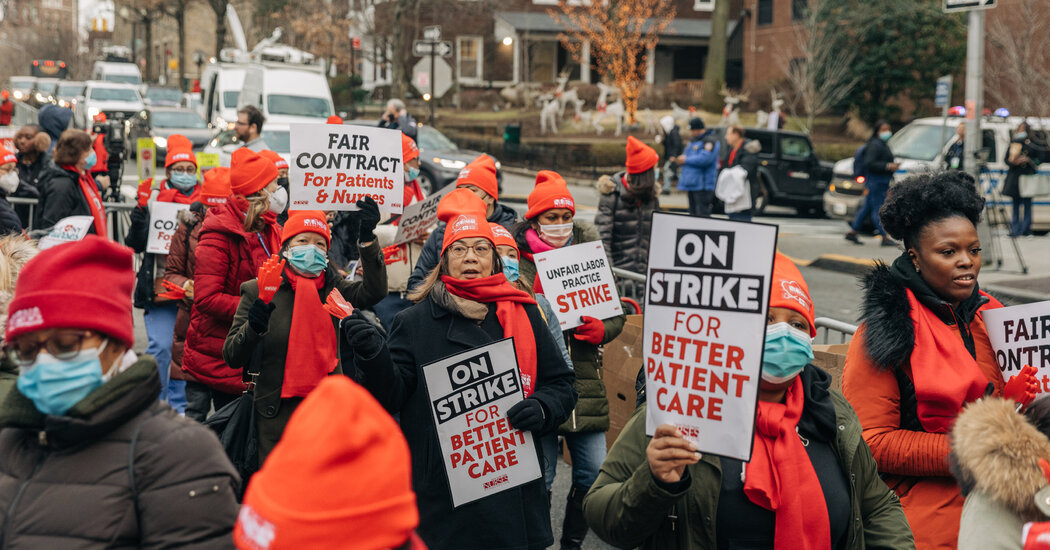Three days after the strike, more than 7,000 nurses at two New York City hospitals will return to work after signing tentative contract agreements early Thursday that would raise their wages and improve working conditions, union leaders said.
The nurses reached agreements with the two hospitals — Mount Sinai Hospital in Manhattan and Montefiore Medical Center in the Bronx — to improve patient-to-staff ratios, the New York State Nurses Association, which represents more than 42,000 members, said in a statement. on Thursday. For nurses in Montefiore, the tentative deal includes a 19.1 percent pay increase, the creation of more than 170 new nursing positions and healthcare coverage for eligible nurses.
“Through our unity and by putting everything on the line, we won enforceable safe-staff ratios in both Montefiore and Mount Sinai, where nurses went on strike for patient care,” Nancy Hagans, the union’s president, said in the statement. “Today we can go back to work with our heads held high, knowing that our victory means safer care for our patients and more sustainable jobs for our profession.”
Mount Sinai and Montefiore said in separate statements that they welcomed the agreements with the union. “It’s fair and responsible, and it puts patients first,” Mount Sinai said.
Philip O. Ozuah, Montefiore Medicine’s general manager, said the hospital was “grateful for the dedication and commitment of our nurses who have served through very difficult circumstances over the past several years.”
Labor organization and trade union actions
The hospitals had diverted ambulances, canceled elective procedures and discharged patients in anticipation of the labor action, New York City’s largest nurses’ strike in decades. It started on Monday morning after the hospitals and the union failed to reach an agreement after four months of contract negotiations.
After the strike began Monday, Montefiore called in temporary nurses and the mayor asked people to call 911 only if necessary. While the emergency room waiting area was largely empty this week, conditions at the hospital were “chaotic,” some patients and staff said, as medical assistants and other staff were forced to perform nursing duties.
The main sticking points in the negotiations at both Montefiore and Mount Sinai were staffing: nurses had asked hospital administrations to attract and hire more nurses and reduce patient-to-staff ratios to improve working conditions and patient safety .
Nurses in the intensive care units at both hospitals said they had been routinely asked to care for three critically ill patients at once, even when patients should have received one-on-one care. In overcrowded emergency rooms, nurses described being asked to care for 15 patients at a time in chaotic conditions.
“We are leaving the profession en masse because we are going home with moral injuries,” said Benny Mathew, a Montefiore emergency nurse for ten years, before the end of the strike was announced. “We go home crying because we are unable to meet the needs of our patients.”
Kavita Paltoo, 36, works in the stroke unit and has been at Mount Sinai for six years. She described double and even triple the burden on ICU and intensive care unit nurses, saying she typically works 14-hour shifts with no lunch breaks.
“We literally just medicate and move on to the next patient,” she said. “We do not provide quality care. We cannot listen to the patient.”
Tea Kvetenadze reporting contributed.

